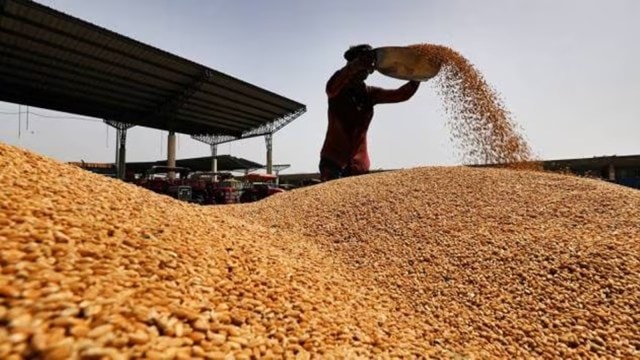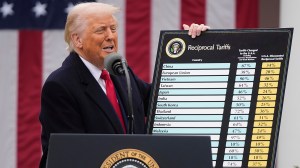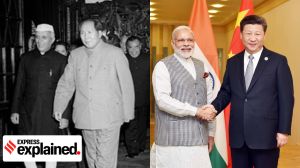Burdened by Rs 500 crore extra interest on grain procurement advance, Punjab’s hopes rest on April 10 meeting with banks
While the Centre reimburses most of the amount spent by the Punjab government to procure grains from farmers, the additional interest is incurred due to the difference in banks’ lending rates for states.
 Every year, state government officials have to go to Mumbai for meetings with the consortium of banks to seek an advance.
Every year, state government officials have to go to Mumbai for meetings with the consortium of banks to seek an advance. Burdened by Rs 500 crore annually on additional interest payments on advance taken for procuring foodgrains worth Rs 80,000 crore for the central pool, fund-crunched Punjab is seeing a ray of hope as a consortium of lender banks led by SBI has finally agreed to a meeting with the state food department on April 10.
In order to pay farmers immediately after their produce (wheat in rabi season; paddy in kharif season) is procured, the Punjab government takes a huge amount in advance from a consortium of banks. This fiscal, it will be taking an advance of Rs 33,000 crore for the procurement of wheat and Rs 47,000 crore for procurement of paddy from a consortium of 30 banks.
This advance, known as Cash Credit Limit (CCL), is credited in the state’s account by banks before the procurement officially starts. After the procured foodgrains are supplied to the Central pool, the money is reimbursed by the Centre to the state. The state then repays the consortium, but it will still have to bear the burden of an additional interest incurred.
This additional interest is generated as banks, which lend money to the Centre at an interest rate of 8.37 per cent, lend it to the states at the rate of Rs 8.97 per cent – an increase of 0.6 per cent. “Technically, this burden should be borne by the Centre as the grains are procured for the Central pool. But we are left to deal with it,” said a government official.
“This is injustice. We have to pay about Rs 500 crore to the consortium of banks every year on account of this 0.6 per cent. The Centre refuses to pay us saying that they borrow money at the interest rate of Rs 8.37 per cent and they would not pay any amount higher than this. The banks tell us that their rate of interest is higher for states. Now, the government wants to pay the procurement price to the farmers immediately after their produce is lifted, the state government has no means to pay the amount from its own account,” said the official.
However, Haryana, which pays minimum support price (MSP) to the farmers from its own consolidated fund, does not have to pay this additional interest. It is applicable only to a couple of states, including Punjab and Madhya Pradesh, which borrow CCL from banks. “Haryana is able to do it as it procures only 100 lakh tonnes of foodgrains while Punjab procures 250 lakh tonnes of rice and wheat every year. Even Madhya Pradesh is contributing more wheat to the central pool than Haryana,” said an official.
“We have taken it up with the Centre several times. They tell us to pay from our own exchequer as the money will be reimbursed from by the Centre after the procurement process ends and the foodgrains are delivered. The state is unable to spare an extra amount to start a new cycle in which it would not have to borrow CCL,” said a functionary.
He added, “Now, since we have been pressing, the Reserve Bank of India and consortium of banks have agreed to hold a meeting on the issue on April 10. If they agree to levy interest at the same rate as Centre, we stand to save Rs 500 crore.”
Every year, state government officials have to go to Mumbai for meetings with the consortium of banks to seek an advance. Ahead of the wheat procurement season, which starts officially on Tuesday, the state has already got 90 per cent advance of Rs 28,000 crore on account of CCL for wheat. The remaining Rs 5,000 crore will be credited in the second instalment.
The additional interest had accumulated as legacy amount of Rs 31,000 crore in 2016. The state is now paying it back in instalments after the BJP-led government in the Centre asked Punjab to clear its dues. The government has since been careful in clearing the accounts.
Must Read
Buzzing Now



Apr 05: Latest News
- 01
- 02
- 03
- 04
- 05






















